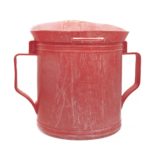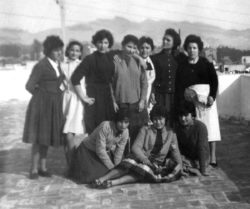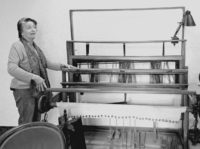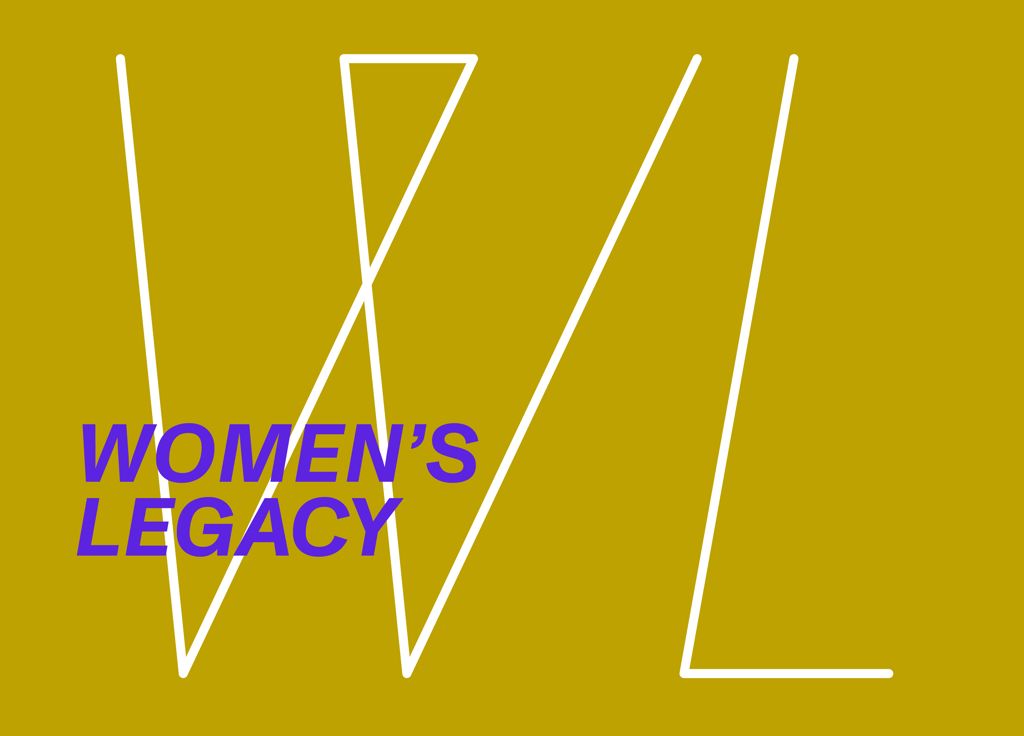Women inhabit the city
Oral memory and heritage of the city of Castelló
Women's stories that explain the heritage and history of the city of Castelló
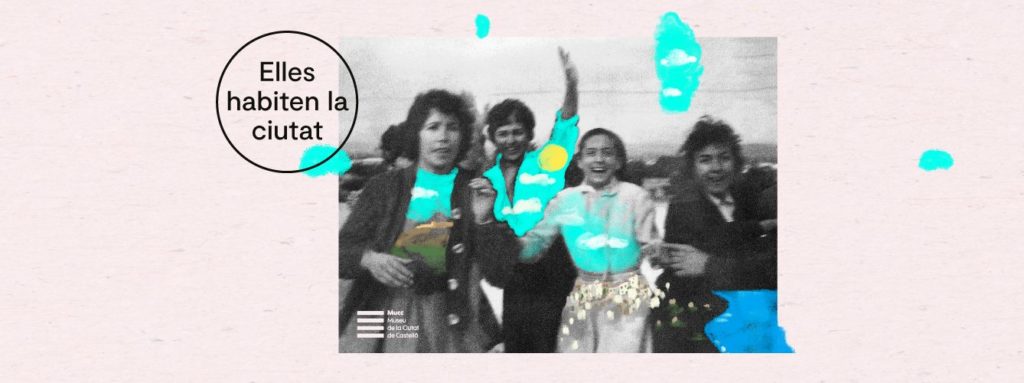
Stories that explain the city in their own voice
Only one part of the story
Often, when we learn about the history of a place, we are told about important events featuring famous people, events and places of great historical or artistic value. However, this is only part of the story.
The historical invisibility of women and their exclusion from the official narrative make it necessary to use gender as a basic tool for explaining social organisation and relations. For this reason, the activities of Women inhabit the city are organised around thematic areas related to the contemporary history of our city – work in textile factories, local commerce, care or spaces for socialisation.
The approach to these themes takes into account the public and private spheres in which the different gender roles are played out. They are stories of everyday life, anecdotes and ways of doing things from the past that give us a deeper understanding of how our society works.
The meetings: women tell the story of the city
Meetings with women who share their experiences and knowledge about topics related to the city’s most recent history.
Information about the meetings 2023
Dates: 9 March 2023 / 26 October 2023
Time: : from 7 p.m. to 8 p.m.
Place: courtyard of the Ethnological Museum of Castelló
Admission: free with prior booking required (info@mucc.es or +34 964 735 217)
Audience: young and adult audiences
The work of women in the textile factories of Castelló
During the first half of the 20th century, the textile industry developed in the city of Castelló. In addition to the workshops, looms, and dressmakers that already existed, factories that produced stockings, socks, or knitwear appeared. One of the most outstanding examples is the Dávalos factory, the building of which is still preserved. Even so, most of the buildings that occupied these factories have disappeared, as is the case of the Julio Folch socks and stockings factory, which was located on Pérez Galdós avenue, or the Vicente Saborit knitwear factory, located between Lagasca street and Hermanos Bou avenue.
Starting in the 1960s, new industrial buildings were built on Vall d’Uixó avenue. Some of these were dedicated to the textile industry, among which the Marie Claire and Dusen factories stand out. These textile factories worked until recently and their workforces were mostly made up of women.
This meeting includes the conversation that took place in the courtyard of the Museum of Ethnology in Castelló on March 10, 2022. The meeting was attended by women who worked in some of these factories for much of their professional career. Their witnesses provide us with information on the distribution of work according to sex and the characteristics of the assigned roles. In addition to the working day, the workers shared experiences and ways of understanding life.
II Encuentro de mujeres: los comercios de proximidad
El «II Encuentro de mujeres» está dedicado a reflexionar sobre el trabajo y las mujeres en el comercio de proximidad. La organización del trabajo y de las jornadas laborales o el producto y su elaboración son los aspectos centrales del día a día de un negocio. Durante décadas muchas mujeres han trabajado en las tiendas de la ciudad desarrollando diferentes tareas, sobre todo las relacionadas con la atención al cliente. Muchas de las tiendas más antiguas de la ciudad son negocios familiares en los que las mujeres han ocupado diferentes cargos como dependientas o continuadoras del negocio familiar, cuya gestión se compartía con los padres o el marido.
En la ciudad de Castelló todavía quedan tiendas que llevan más de cien años ofreciendo sus servicios al barrio. La calidad de sus productos y el trato próximo y profesional con los clientes son las características distintivas de estos comercios, y es justamente este valor añadido el que los hace diferentes a otros tipos de tiendas y cadenas multinacionales. Son comercios que han vivido los cambios de la ciudad desde detrás de sus mostradores y han visto crecer a las diferentes generaciones de una misma familia.
Este encuentro recoge la conversación que tuvo lugar en el patio del Museo de Etnología de Castelló el día 26 de mayo de 2022.
A partir dels anys 60 es van construir noves naus industrials a l’avinguda Vall d’Uixó. Algunes d’aquestes es van dedicar a la indústria tèxtil, entre les quals destaquen especialment les fàbriques de Marie Claire i Dusen. Aquestes fàbriques del tèxtil van funcionar fins fa poc i les seues plantilles estaven compostes majoritàriament per dones.
Aquesta trobada recull la conversa que va tenir lloc al pati del Museu d’Etnologia de Castelló el dia 10 de març de 2022. En la trobada van participar dones que van treballar en algunes d’aquestes fàbriques durant gran part de la seua trajectòria professional. Els seus testimonis ens aporten informació sobre el repartiment del treball segons el sexe i les característiques dels rols assignats. A més de la jornada laboral, les treballadores compartien experiències i formes d’entendre la vida.
III Encuentro de mujeres: el tiempo libre y los espacios de socialización
El «III Encuentro de mujeres» es un diálogo sobre el tiempo libre y las actividades y puestos que han ocupado las mujeres durante la segunda mitad del siglo XX. Con una mirada transversal, la conversación transcurre por los diferentes momentos de la vida de las mujeres participantes, desde la niñez hasta la juventud y la madurez.
Las calles y plazas de la ciudad durante la niñez, los bares y cines en la juventud o la participación en movimientos sociales y en actividades artísticas, como el teatro o la música, son los espacios de socialización de mujeres de varias generaciones. Además, los testimonios aportados por estas mujeres nos hacen reflexionar sobre cómo la incorporación al trabajo o la maternidad han influido en el tiempo libre que tenían y cómo han dispuesto de él.
Este encuentro recoge la conversación que tuvo lugar en el patio del Museo de Etnología de Castelló el día 19 de mayo de 2022. En el encuentro participaron mujeres de diferentes generaciones, barrios y orígenes. Sus testimonios nos aportan información sobre la gestión de su tiempo personal y la reivindicación de un ocio seguro en el que las mujeres dejan de tener miedo cuando vuelven a casa.
A partir dels anys 60 es van construir noves naus industrials a l’avinguda Vall d’Uixó. Algunes d’aquestes es van dedicar a la indústria tèxtil, entre les quals destaquen especialment les fàbriques de Marie Claire i Dusen. Aquestes fàbriques del tèxtil van funcionar fins fa poc i les seues plantilles estaven compostes majoritàriament per dones.
Aquesta trobada recull la conversa que va tenir lloc al pati del Museu d’Etnologia de Castelló el dia 10 de març de 2022. En la trobada van participar dones que van treballar en algunes d’aquestes fàbriques durant gran part de la seua trajectòria professional. Els seus testimonis ens aporten informació sobre el repartiment del treball segons el sexe i les característiques dels rols assignats. A més de la jornada laboral, les treballadores compartien experiències i formes d’entendre la vida.
IV Encuentro de mujeres: las festividades y los ciclos de la vida
Jugar en la calle después del colegio, conseguir el primer trabajo, llegar a una ciudad nueva o cuidar de los familiares al mismo tiempo que trabajan en el negocio familiar son algunos de los temas que formaron parte del «IV Encuentro de mujeres» de Ellas habitan la ciudad. Con sus testimonios recorremos hechos históricos del pasado reciente de la ciudad y analizamos cómo condicionaron sus vidas.
Este encuentro recoge la conversación que tuvo lugar en el patio del Museo de Etnología de Castelló el día 16 de junio de 2022. En el encuentro participaron mujeres de diferentes generaciones, barrios y orígenes. Sus testimonios nos aportan información sobre el rol de las mujeres en la preparación y celebración de festividades como la Navidad o las Fiestas de Agosto, así como en momentos importantes de la vida de las personas, como la boda, el nacimiento de los hijos o hijas, o la muerte de un familiar.
A partir dels anys 60 es van construir noves naus industrials a l’avinguda Vall d’Uixó. Algunes d’aquestes es van dedicar a la indústria tèxtil, entre les quals destaquen especialment les fàbriques de Marie Claire i Dusen. Aquestes fàbriques del tèxtil van funcionar fins fa poc i les seues plantilles estaven compostes majoritàriament per dones.
Aquesta trobada recull la conversa que va tenir lloc al pati del Museu d’Etnologia de Castelló el dia 10 de març de 2022. En la trobada van participar dones que van treballar en algunes d’aquestes fàbriques durant gran part de la seua trajectòria professional. Els seus testimonis ens aporten informació sobre el repartiment del treball segons el sexe i les característiques dels rols assignats. A més de la jornada laboral, les treballadores compartien experiències i formes d’entendre la vida.
The interviews: the city listens to women
Audiovisual archive presenting the complete interviews with the women who participated in the project. The interviews are organised in the following thematic areas: the textile factory, local trade and social life.
Festivities and the cycles of life
